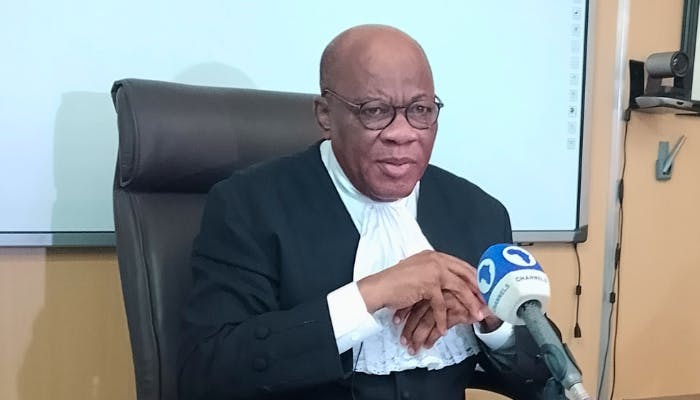Time to rethink Nigeria’s oil and gas governance model – Agbakoba
NEWS
|Jul 15, 2024


Olisa Agbakoba, senior advocate of Nigeria (SAN) and maritime lawyer, has faulted the existing governance model in the Nigerian oil and gas sector. He called for a rethink, saying only that can make the sector profitable for all citizens.
In a policy paper prepared by his Law Chamber, Olisa Agbakoba Legal (OAL), the former Nigerian Bar Association (NBA) president, contended that the oil and gas sector needed to be urgently overhauled because “it is not working.”
According to him, despite the huge oil and gas endowment, the Nigerian government has always gone a borrowing and the people wallow in abject poverty.
He proposed a major paradigm shift from a model focused on mere resource extraction and revenue sharing by contracts, to a scheme of comprehensive economic development.
According to him, “Nigeria must adopt a ‘development oil’ approach,” expressing the optimism that “Nigeria can transform its massive natural resources into an engine of sustainable growth, infrastructural development, and improved living standard for its citizens.”
He noted that “Nigeria stands at a critical juncture in its economic history. Despite blessed with vast oil and gas resources, the country continues to grapple with the paradox of plenty, manifested in high poverty rates, inadequate infrastructure, and uneven economic development. This policy paper proposes a paradigm shift in Nigeria’s oil and gas sector governance, advocating for a ‘Development Oil’ approach.
“The proposed approach reimagines the role of oil and gas resources in National Development, moving beyond mere extraction and revenue sharing to leveraging assets as catalysts for comprehensive economic development. By adopting this model, Nigeria will transform its natural wealth into a powerful engine for sustainable development, improved infrastructure, and enhanced living standards for its citizens.”
He also noted that “Nigeria, with proven reserves of 37 billion barrels of oil and 188 trillion cubic feet of gas, stands as the largest oil and gas producer in sub-Saharan Africa. The petroleum industry forms the backbone of the Nigerian economy, contributing approximately 90percent of the country’s foreign exchange earnings and about 60percent of total income.
“However, this abundance of natural resources has not translated into broad-based economic development and improved living standards for majority of Nigerians.
“The country continues to grapple with what economists call the ‘resource curse’ or the ‘paradox of plenty.’ This phenomenon is characterized by countries rich in natural resources, particularly non-renewable resources like minerals and fuels, experiencing less economic growth, less democracy, and worse development outcomes compared to countries with fewer natural resources. In Nigeria, this is manifested by high poverty rates, inadequate infrastructure, and uneven economic development.”
Although he commended the recent initiatives by President Bola Ahmed Tinubu, such as the Accelerated Stabilization and Advancement Plan aimed at injecting N2 trillion into the economy over six months, saying it was positive, with the plan to mitigate impact of two significant market corrections: removal of fuel subsidies and the liberalization of the foreign exchange market, he however, pointed out that these measures fall short of the comprehensive reform needed to resolve Nigeria’s deep-seated economic challenges.
Source: BusinessDay